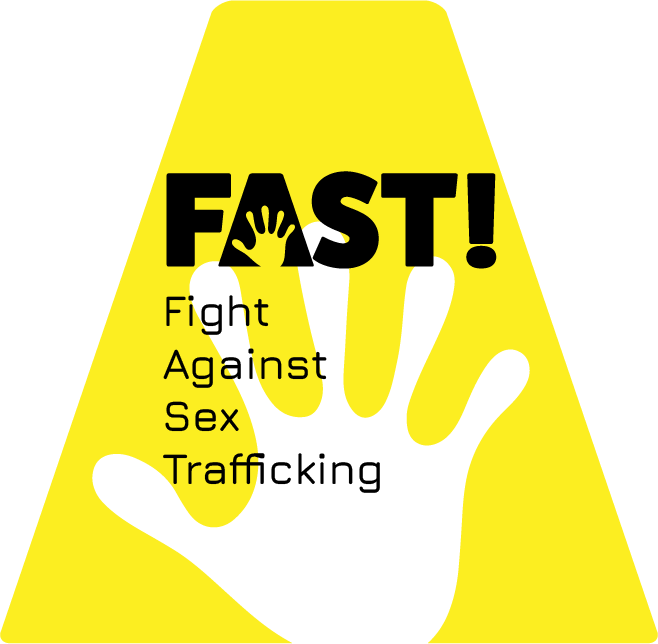Sex Trafficking Survivors: Reclaiming Power and Dignity Beyond Shame. Sex trafficking is a crime defined by most as horrific that victimizes thousands of individuals around the world every year. It inflicts unimaginable and long-lasting suffering on its victims, being characterized by coercion, violence, and exploitation, leaving scars that are both physical and emotional. However, it’s essential to recognize that survivors of sex trafficking should never feel ashamed for the unimaginable suffering they endured, whatever violence or exploitation they endured. In this article, we delve into the profound reasons why survivors of sex trafficking should never bear the weight of shame for the cruelty they endured and explain the journey towards not only reclaiming their inherent power and dignity but also nurturing their resilience and strength.
The first step is to understand the dynamics of coercion and manipulation that sex traffickers employ to control their victims. The exploitation is achieved and maintained through a range of coercive methods that traffickers use and without which they could not succeed. Traffickers use coercive measures to achieve three aims:
- To apply and maintain the exploitation of their victims
- To ensure compliance with their instructions
- To prevent victims from escaping from their exploitation after they have realized the true situation.
It is important to know these methods and to understand how they work to be able to answer the following question;
- If not all victims are physically prevented from escaping, why don’t more escape?
To answer this question, it is necessary to consider the range of control mechanisms that traffickers use:
Economic coercion – victims may be debt-bonded so that they are not allowed to leave until highly inflated sums that have allegedly been spent by the traffickers on their recruitment and or transportation to the venue of exploitation have been re-paid, The debt-bond is reinforced by threats of reprisals that may be taken against them or their loved ones if they leave before the money has been paid back.
Traffickers may also withhold wages or otherwise interfere with the payments that are due to victims as a means of ensuring that they continue to submit to their exploitation in the hope of finally being paid the money that they are owed.
Isolation – traffickers isolate their victims as a means of coercing them and reducing their ability to escape: victims are likely to be isolated from people who speak their language, apart from other victims or their traffickers; traffickers may retain any identity or travel documents that the victims may have to increase their sense of isolation; they may reinforce this by telling them that they are illegally in the country and that they face arrest and deportation if they go to the authorities or that doing so is pointless as the police are corrupt and in the pay of the traffickers; all of these techniques have the same goal – to deny victims access to sources of assistance
Use or threat of violence – a common method of coercion is the use or threat of physical, sexual, and psychological abuse to ensure submission to exploitation and ongoing obedience.
Addiction – the traffickers coerce some victims into acceptance of their situation by inducing their dependency on a range of narcotics. This technique exploits the fact that many victims use narcotics to ease the reality of their daily exploitation and the traffickers encourage this trend whilst at the same time increasing the dependency of the victims up them through their control of the drug supply.
Loved Ones – this technique is prevalent and extremely effective in coercing victims into submission and obedience. Rather than use or threaten violence against the victims, or, as an additional means of coercion, traffickers will threaten the victims with reprisals against their loved ones if the victims fail to comply or try to escape.
False Promises and Lies: Traffickers may lure their victims with false promises of love, money, or a better life. They may also lie about the nature of the work they are offering or the legal status of their victims. They may also create a false sense of debt or obligation that their victims have to repay.
Gaslighting: Traffickers may use gaslighting to make their victims doubt their perception, memory, and sanity. They may deny, contradict, or distort the facts, making their victims question their reality. They may also blame their victims for the abuse they suffer or make them feel guilty for wanting to leave.
Exposure and shame – this technique is used mainly, but not exclusively, for victims of sex trafficking. It exploits the fact that prostitution is stigmatized in most countries and is regarded as shameful by the victims, even in those cases where they have been coerced into prostitution. The traffickers exploit these feelings of shame and coerce the victims into compliance by threatening to expose their activities to their families, friends, or the public at large.
It is important to remember that this technique can also apply to other forms of exploitation where deception has been used to recruit the victims. It remains effective for the simple reason that human beings do not normally enjoy being made to look stupid in the eyes of others and may feel ashamed if the fact that they have been duped is disclosed to family, friends, or the public.
The methods set out above may be applied singly but are usually used found in combination with each other. It is when their individual or collective impact is considered that it becomes possible to understand the pressures that victims face and answer the question as to why victims that are not physically restrained do not escape when the opportunity arises.
- The answer to the question is that victims are coerced into submission and prevented from escaping either by physical or psychological means or usually both.
They can make them feel trapped, powerless, and worthless. They can also make them internalize the blame and shame for the violence and exploitation they endure. However, it is important to remember that these tactics are not a reflection of the victims’ character or choices, but rather a deliberate strategy of the traffickers to maintain control over them. Recognizing the tactics used can help survivors understand the circumstances they faced and detach themselves from feelings of shame.
Reclaiming power and dignity is an essential part of the healing process for survivors of sex trafficking. They must understand that they are not defined by the violence and exploitation they experienced. By recognizing their victimhood, survivors can start the journey toward reclaiming their sense of self-worth and rebuilding their lives.
One way to reclaim power is through education and advocacy. Survivors can become powerful voices in raising awareness about sex trafficking, sharing their stories, and advocating for the rights and support of other victims. By speaking out, survivors not only contribute to the fight against sex trafficking but also empower themselves and others.
Therapy and counseling play a vital role in the healing process. Trauma-informed therapy helps survivors address the psychological and emotional wounds inflicted by sex trafficking. It provides a safe space for survivors to process their experiences, challenge any feelings of shame or guilt, and develop coping mechanisms to rebuild their lives.
Support networks are crucial for survivors on their journey toward healing. Connecting with other survivors and participating in support groups can provide an environment of understanding, validation, and empathy. Sharing experiences with others who have walked a similar path can alleviate feelings of shame and create a sense of community and solidarity.
Lastly, society as a whole needs to combat the stigma and shame associated with sex trafficking. By challenging victim-blaming attitudes and supporting survivors without judgment, we can create a more inclusive and compassionate society that welcomes and embraces survivors as they reclaim their power and dignity.
In conclusion, survivors of sex trafficking should never carry the burden of shame for the violence and exploitation they endured. Understanding the psychological control tactics used by traffickers helps survivors detach from feelings of shame. Reclaiming power and dignity is possible through education, therapy, support networks, and societal change. We must stand in solidarity with survivors and support them in their journey toward healing and reclaiming their lives.



